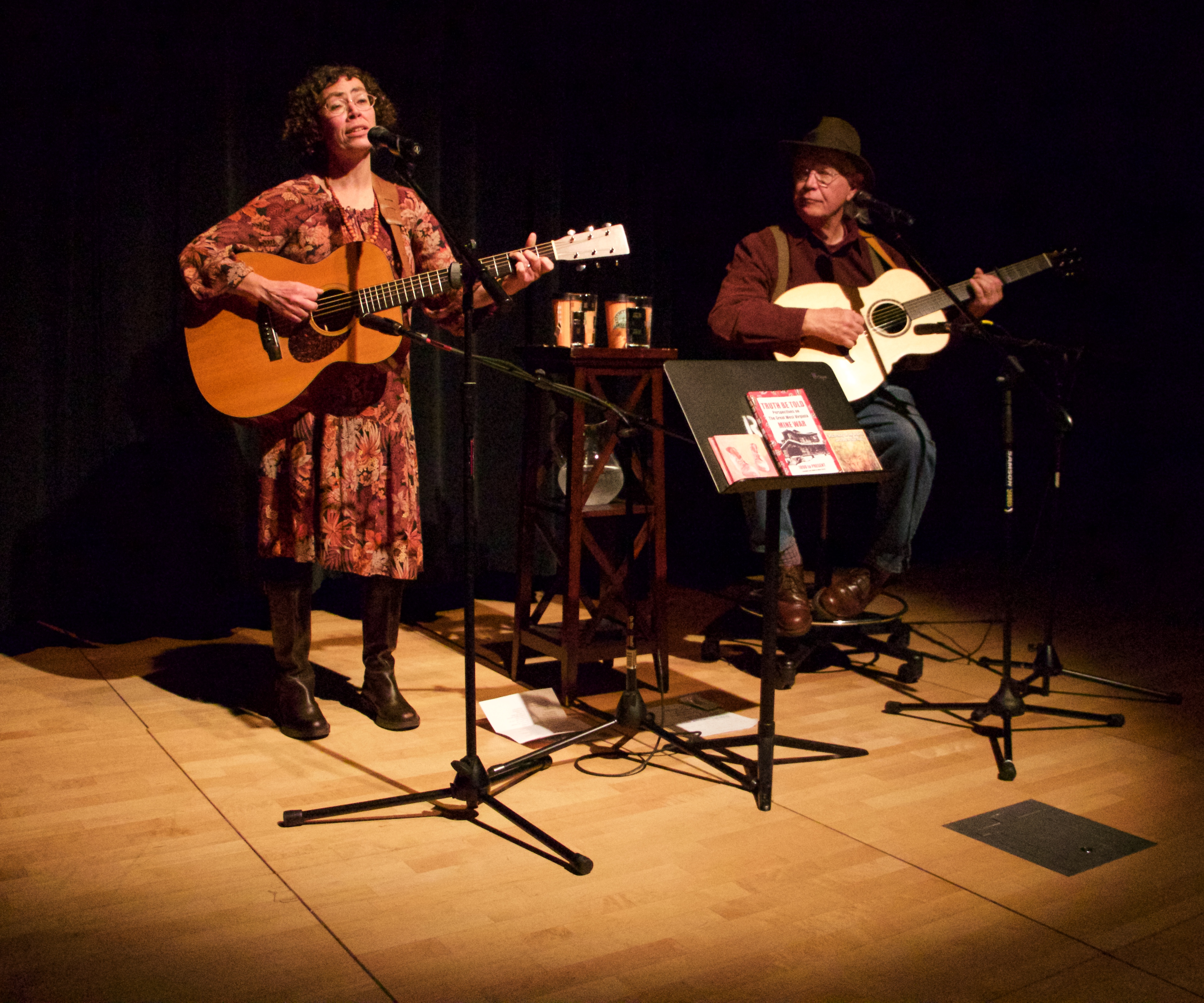Folklorists visit Center for Poetry as part of Fall Writing Festival
November 5, 2015 - Kelsey Block
My heart, my soul, my spirit flies,
As I walk with granny one more time…
Folklorists Michael and Carrie Nobel Kline joined the RCAH Center for Poetry as part of the annual Fall Writing Series. Throughout the week of October 27, the musicians visited classes, facilitated conversations and gave a performance in the RCAH Theater.
The two met in Massachusetts in the 1980s while Michael was working on a folklore project and Carrie was working at a summer camp.
“I became enamored, at least admittedly with the work, and about eight months later with the folklorist himself,” Carrie Nobel Kline said.
“There was no romance that developed in this, initially. I wanted to make very sure I didn’t allow my personal attraction to muddy the waters we were trying to work in together. And she was just very eager to learn,” Michael Kline said. “We just grew together over time.”
Their first interview project together involved a 106-year-old man who had served in a Russian czar’s army in the early 1900s.

Since that first interview, the Klines have talked with perhaps a thousand people about their stories. They’ve interviewed people in a number of different communities about a variety of subjects, but Carrie Kline says one thing always stays the same.
“The main thing is to admit to not knowing,” she said. “Really, all I can do is ask to be taught, to be schooled, to show interest… We try to create a situation where they know that I believe they’re the expert and they’re the teacher and I want to be sitting at their feet.”
Over the years, the Klines have continued to share stories and music in workshops, recordings, radio broadcasts and live performances.
In all of their work, whether it’s with fourth graders or college students, the Klines are careful to contextualize the stories and the music.
“Kids don’t like history – it’s all about rich men with suits and ties and presidents and politicians and generals. They don’t see any place in that for themselves,” Michael Kline said. “So we sing these groovy old songs and ask them to talk about the song, retell the story, learn the song, sing it and then try to provide a context for the song which is the history we’re after teaching.”
“We’re not just choosing to play the banjo because we think it’s a groovy instrument but we’re excited about the culture from which the banjo came,” Carrie Kline said.

